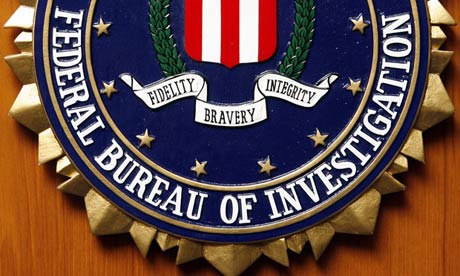 Journalist Glenn Greenwald condemned the mainstream media during an address at a German computer conference on Friday and accused his colleagues of failing to challenge erroneous remarks routinely made by government officials around the globe.
Journalist Glenn Greenwald condemned the mainstream media during an address at a German computer conference on Friday and accused his colleagues of failing to challenge erroneous remarks routinely made by government officials around the globe.
Thousands of attendees at the thirtieth annual Chaos Communication Congress in Hamburg packed into a room to watch the 46-year-old lawyer-turned-columnist present a keynote address delivered less than seven months after he started working with former National Security Agency contractor Edward Snowden.
Glenn Greenwald: US, British media are servants of security apparatus
NSA goes on 60 Minutes: the definitive facts behind CBS's flawed report
 The National Security Agency is telling its story like never before. Never mind whether that story is, well, true.
The National Security Agency is telling its story like never before. Never mind whether that story is, well, true.
On Sunday night, CBS’s 60 Minutes ran a remarkable piece that provided NSA officials, from director Keith Alexander to junior analysts, with a long, televised forum to push back against criticism of the powerful spy agency. It’s an opening salvo in an unprecedented push from the agency to win public confidence at a time when both White House reviews and pending legislation would restrict the NSA’s powers.
US Shutting Down a Key News Source
This New Year’s Eve, the Office of the Director of National Intelligence will quietly deliver a devastating blow to the American public’s access to accurate, unbiased information that is unparalleled in quality and comprehensiveness by shutting off access to the World News Connection.
WNC is a valuable trove of U.S. government-sponsored media translations and analyses that has informed the work of American scholars, journalists, writers and historians for the past six decades. It is one of the few offices in the U.S. intelligence community that regularly shares information with the people, rather than simply extracting metadata about them.
Reports Expose Extreme Pressure Groups Masquerading as Think Tanks
 Twelve new reports released today expose the State Policy Network (SPN), an $83 million web of right-wing "think tanks" in every state across the country. Although SPN's member organizations claim to be nonpartisan and independent, an in-depth investigation reveals that SPN and its state affiliates are major drivers of the American Legislative Exchange Council (ALEC)-backed corporate agenda in state houses nationwide, with deep ties to the Koch brothers and the national right-wing network of funders.
Twelve new reports released today expose the State Policy Network (SPN), an $83 million web of right-wing "think tanks" in every state across the country. Although SPN's member organizations claim to be nonpartisan and independent, an in-depth investigation reveals that SPN and its state affiliates are major drivers of the American Legislative Exchange Council (ALEC)-backed corporate agenda in state houses nationwide, with deep ties to the Koch brothers and the national right-wing network of funders.
The reports show how these groups masquerade as "think tanks," and describe how some of them may be skirting tax laws while really orchestrating extensive lobbying and political operations to peddle their legislative agenda to state legislators, all while reporting little or no lobbying activities.
Former FBI agent sentenced to three years in prison for Associated Press leak
 A former FBI explosives expert was sentenced on Thursday to more than three years in prison for possessing and disclosing secret information, which he has said included intelligence he gave to the Associated Press for a story about a US operation in Yemen in 2012.
A former FBI explosives expert was sentenced on Thursday to more than three years in prison for possessing and disclosing secret information, which he has said included intelligence he gave to the Associated Press for a story about a US operation in Yemen in 2012.
The story on Yemen led to a federal leaks investigation and the seizure of AP phone records in the government's search for the information's source.
60 Minutes Benghazi interview update: CBS conducting ‘journalistic review
 When “60 Minutes” apologized for featuring in its report on Benghazi a security contractor whose story turned out to be a lie, it said it had been “misled.” But a close examination of the controversial piece by McClatchy shows that there are other problems with the report, whose broadcast renewed debate about one of the most contentious events in recent U.S. diplomatic history.
When “60 Minutes” apologized for featuring in its report on Benghazi a security contractor whose story turned out to be a lie, it said it had been “misled.” But a close examination of the controversial piece by McClatchy shows that there are other problems with the report, whose broadcast renewed debate about one of the most contentious events in recent U.S. diplomatic history.
In an email Wednesday, CBS declined to respond to questions about the accuracy and origin of some of the other aspects of the report. But it said that it was undertaking “a journalistic review that is ongoing” – the network’s first acknowledgement that concerns about the report may go deeper than just the discredited interview with security supervisor Dylan Davies.
The Military-Industrial Pundits: Conflicts of Interest Exposed for TV Guests Who Urged Syrian War
New research shows many so-called experts who appeared on television making the case for U.S. strikes on Syria had undisclosed ties to military contractors. A new report by the Public Accountability Initiative identifies 22 commentators with industry ties. W
hile they appeared on television or were quoted as experts 111 times, their links to military firms were disclosed only 13 of those times. The report focuses largely on Stephen Hadley, who served as national security adviser to President George W. Bush.
More Articles...
Page 18 of 103

 Journalism Glance
Journalism Glance






























